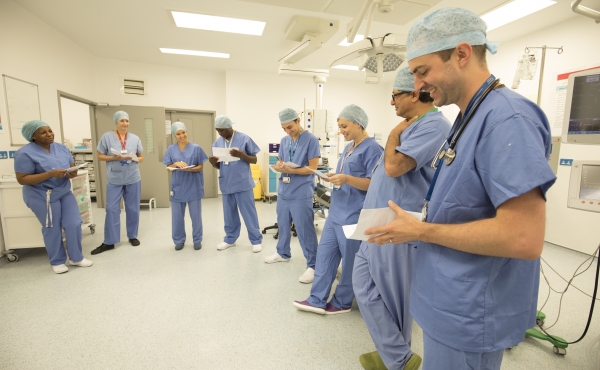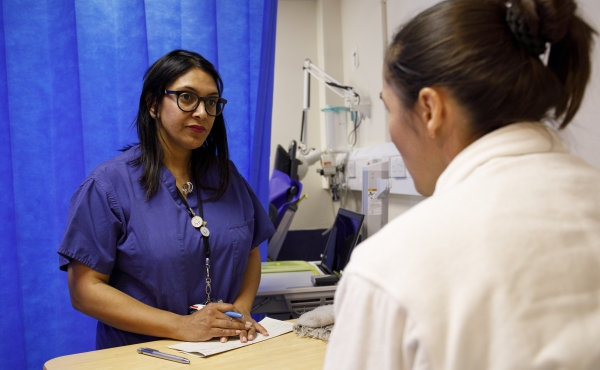Regional Trainer Network: RAPMs and Faculty Tutors
The FPM manages a network of Regional Advisors and Faculty Tutors
These local trainers deliver, advise upon, quality assure and sign off on Pain Medicine training.
More information about the FPM's quality management framework is available on this page.
Regional Advisors in Pain Medicine (RAPMs)
The Board of the Faculty of Pain Medicine is responsible for the appointment and re-appointment of Regional Advisors in Pain Medicine (RAPMs).
Dr Jonathan Rajan is the current Chair of the RAPMs formally succeeding Dr Hoo Kee Tsang on 1 January 2023.
- Find your Regional Advisor in Pain Medicine.
- Click here for the Roles and Responsibilities for RAPMs.
RAPMs are responsible for ensuring that training and education in Pain Medicine in their region is properly delegated and organised, fulfils the requirements of the CCT document, is accessible to all trainees (Stage 1, Stage2, Stage 3 & Special Interest Area (SIA), and those spending time in research) through suitable communication channels and is appropriately supervised.
The RAPM acts as coordinator between the Regional Advisor in Anaesthesia, the Postgraduate Dean, Programme Directors, College Tutors, academic departments, clinical managers, the Schools of Anaesthesia and other specialties (such as palliative medicine and neurology) to enhance training in Pain Medicine and to ensure trainees are appropriately appraised, assessed and supported.
The RAPM is involved in the assessment and Annual Review of Competence Progression (ARCP) process for Stage 3 SIA Pain Medicine Trainees. The RAPM also feeds back to the Faculty regarding any major problems or difficulties relating to Pain Medicine within their region.
Faculty Tutors (Pain)
In conjunction with the local hospital, RAPMs appoint Faculty Tutors (Pain). FTPs are responsible for ensuring the training site has a comprehensive pain training programme across all agreed areas of the Pain Medicine curriculum. FTPs will work with the RAPM to ensure cross-regional cohesion and with local trainers to ensure good quality training.
The FPM runs a successful Leadership Conference for local pain tutors involving lectures, updates and workshops to keep FTPs up to date with current training information and provide an opportunity for networking across regions.
These meetings are held every other year and are usually in November. Please monitor this page and other communications from the Faculty for updates and details for booking your place.
Support for Medical Education and Trainers
- The GMC's State of Medical Education and Practice in the UK: Workforce Report 2024 highlights the urgent need to prioritise support for trainers to keep pace with the growing and increasingly diverse medical workforce. Trainers play a critical role in ensuring high-quality education and development for all doctors, including those navigating unique challenges such as adapting to UK practice or managing rising workloads. Allocating protected time for training roles, as emphasised by the GMC, is essential not only for trainers' job satisfaction but also for maintaining the high standards of patient care demanded by an expanding and ageing population
- Please also see the letter below from the Department of Health & Social Care, Academy of Medical Royal Colleges, General Medical Council (GMC) & the NHS's Chief Medical Officer, Medical Director and Chief Executive encouraging trusts and trust Boards to continue to look favourably on requests from doctors seeking support to undertake national or regional work for the wider benefit of the public and of health services across England and the devolved administrations.
- The BMA has recently developed a Consultant Charter (Jan 2025) to provide an overview of the standards you should expect your employers to meet and to help identify where they are falling short. It covers areas such as job planning; safe working patterns; flexible working; workplace environment; facilities and more. One of the specific aims of the charter is to recognise the expertise that consultants bring as senior leaders who have responsibilities for services and their development; teaching, educating the next generation; advancing research and innovation to improve patient outcomes, as well as direct clinical responsibilities. There are dedicated sections on consultants as clinical leaders and as educators, trainers, and lifelong learners, which can be used in job planning discussions with employers.
Want to know more about quality management?
Find out more about the Faculty's Quality Management framework, which ensures the high quality of Pain Medicine training throughout the UK.



